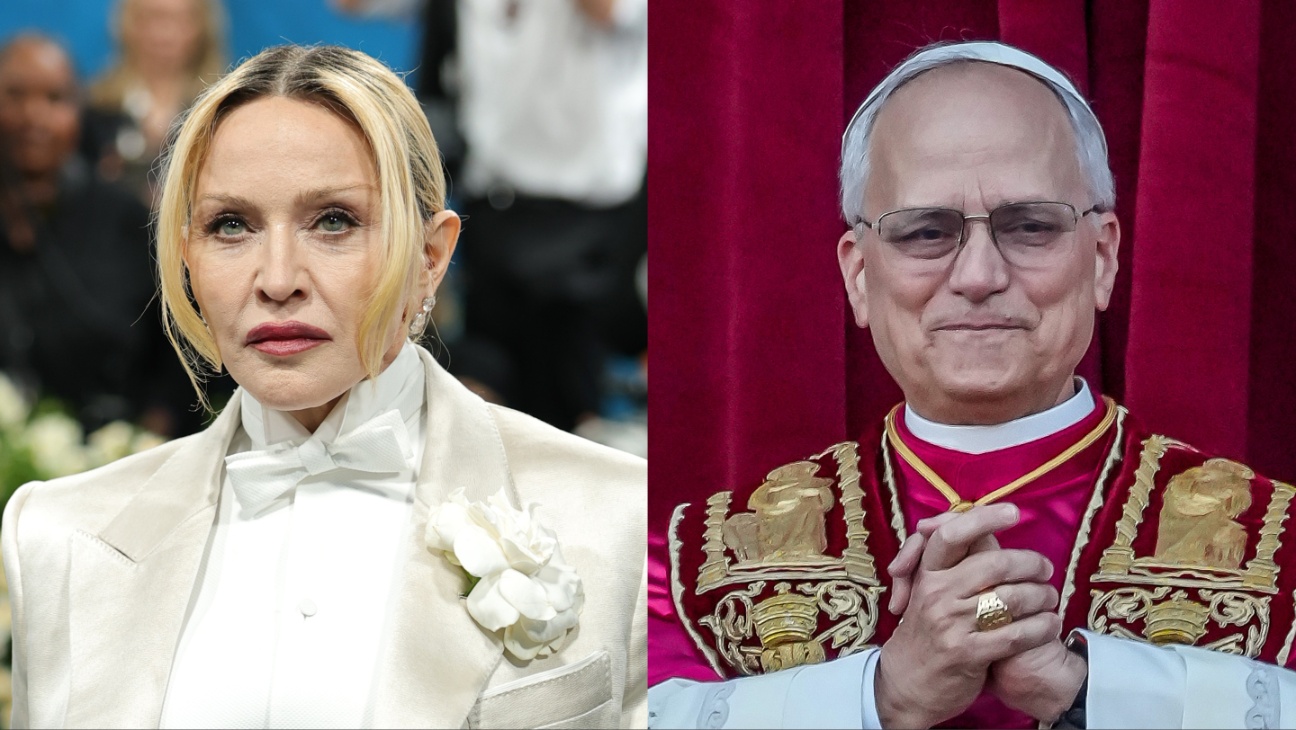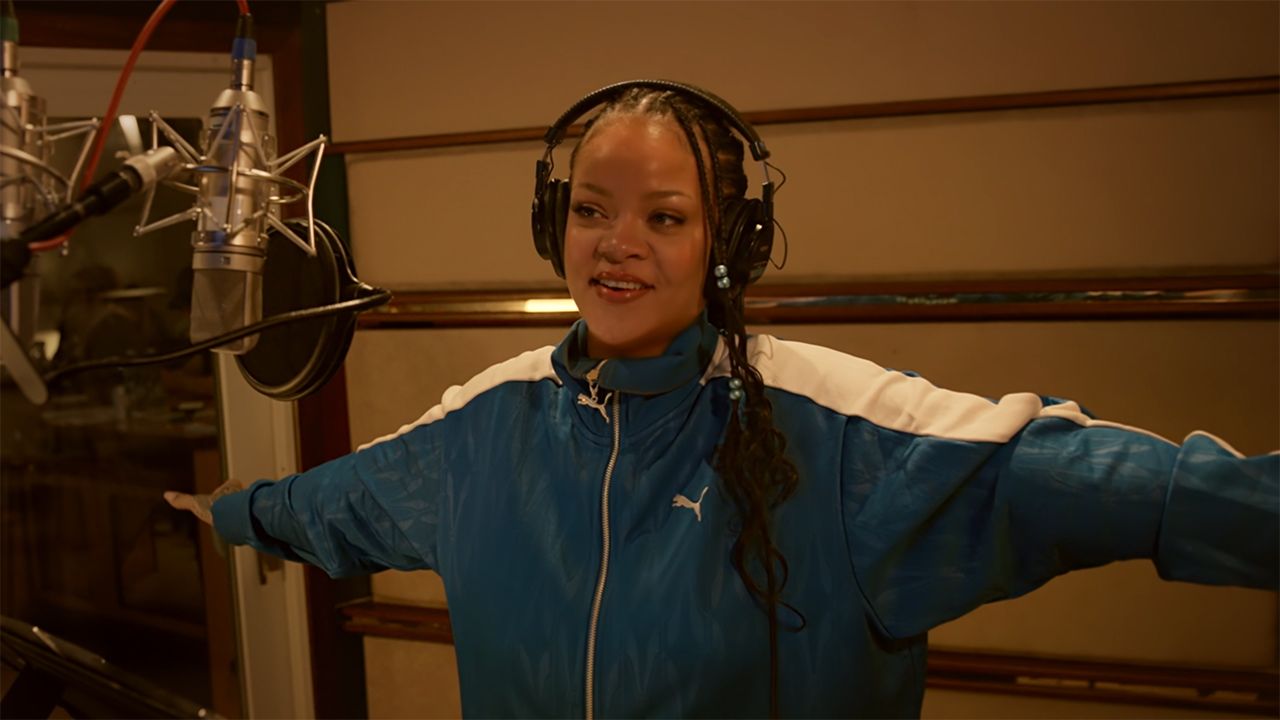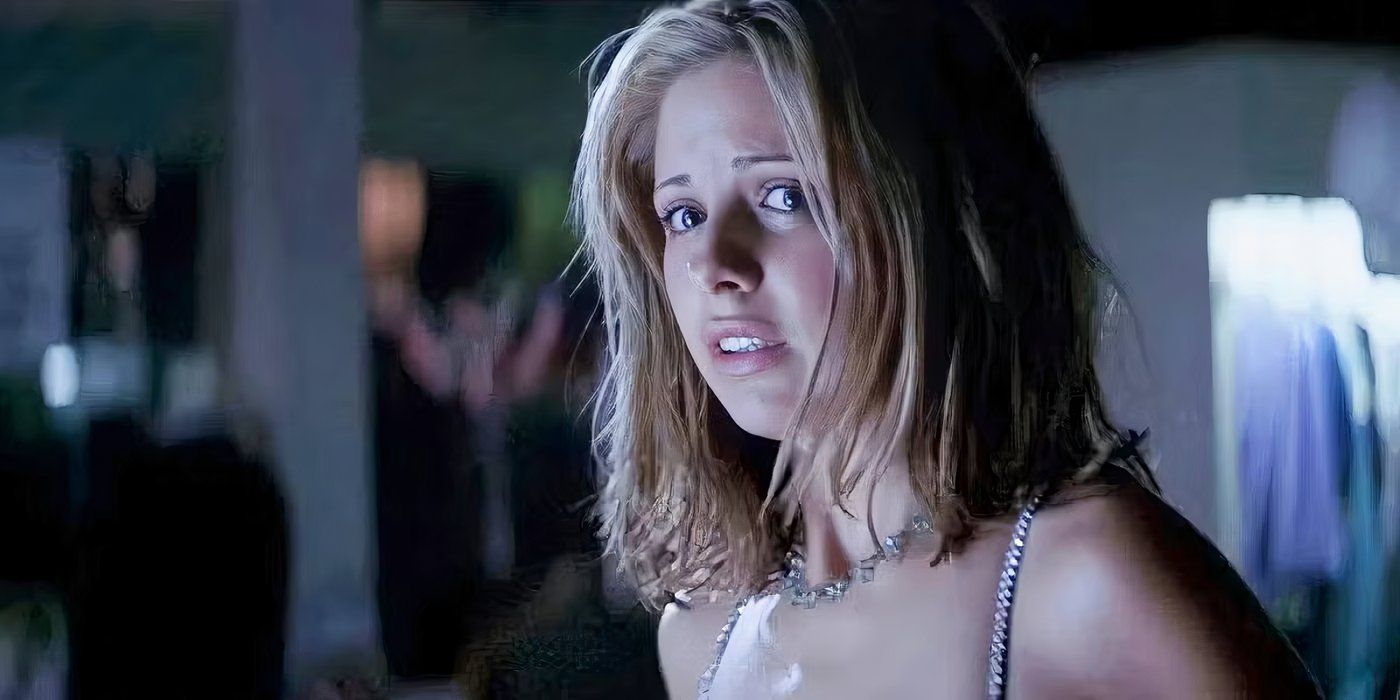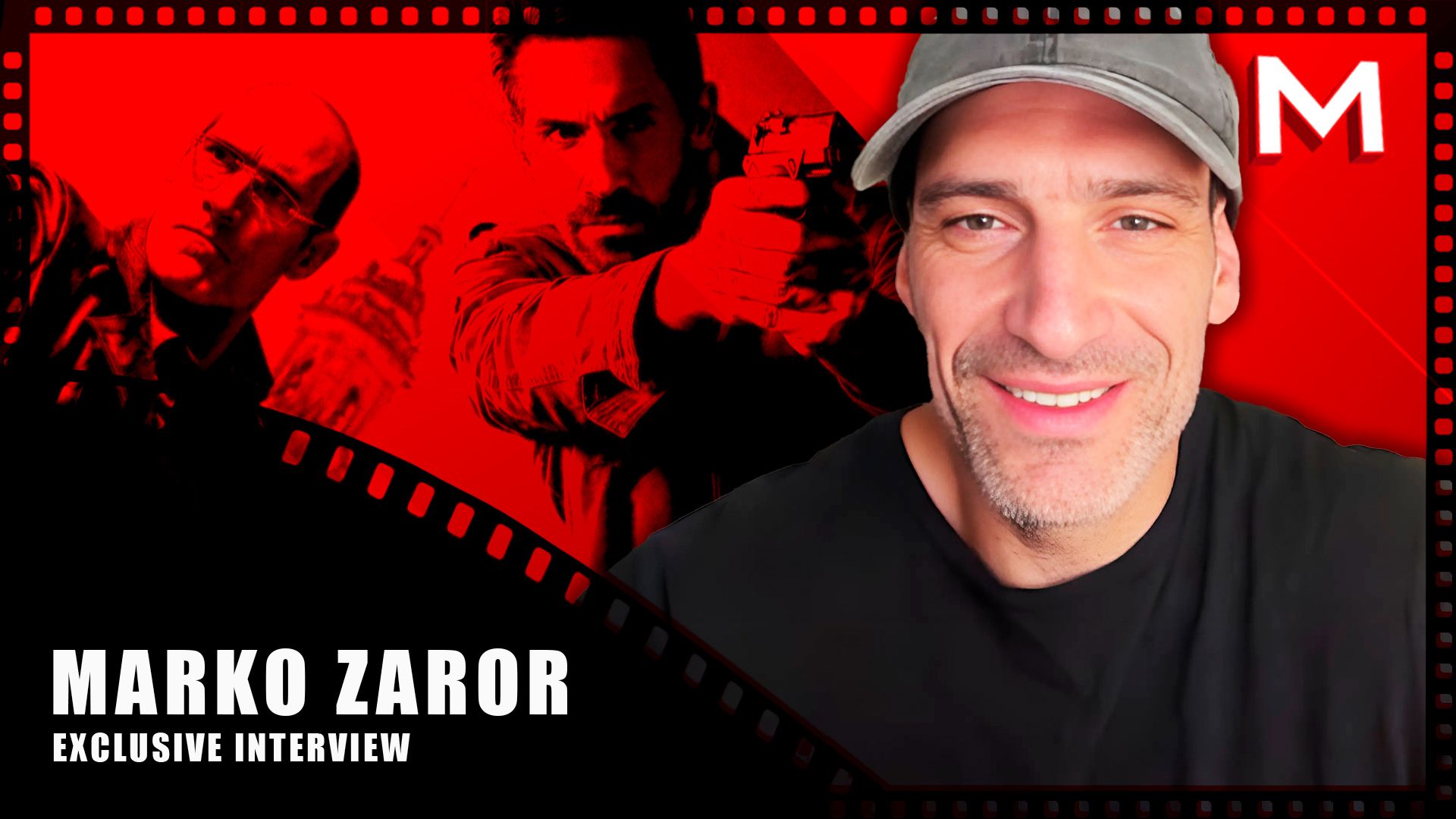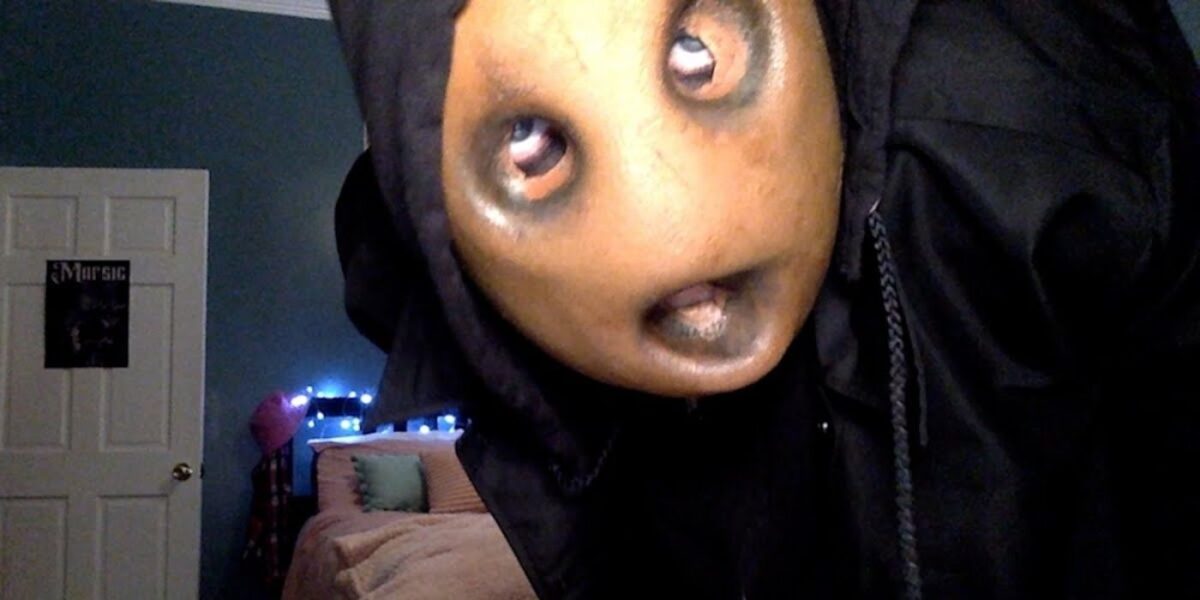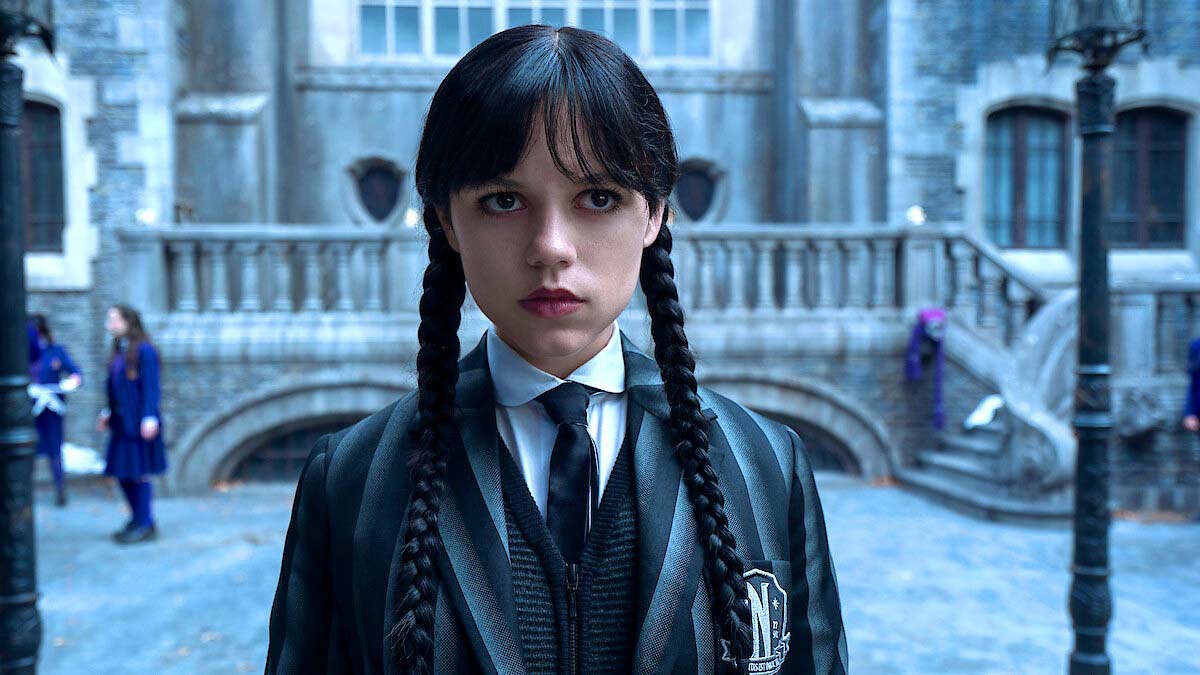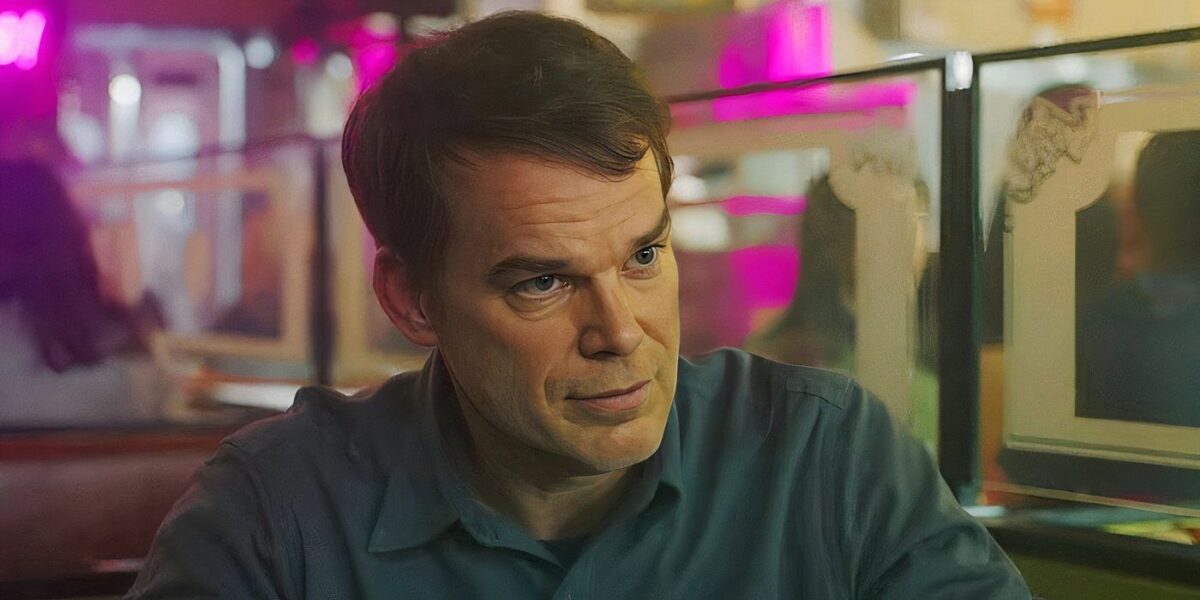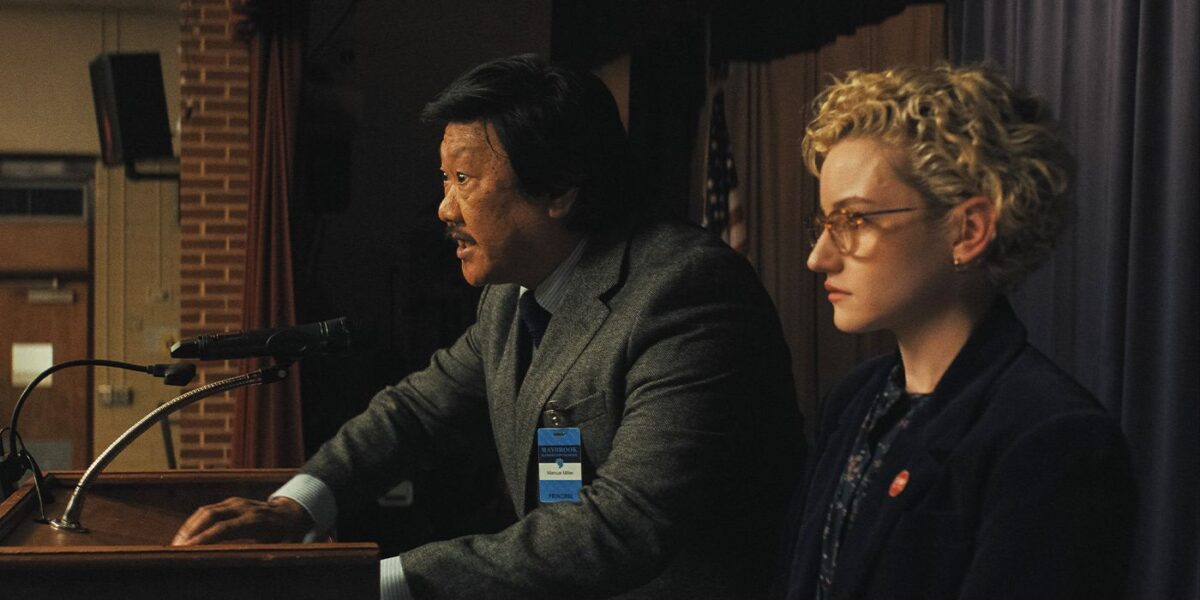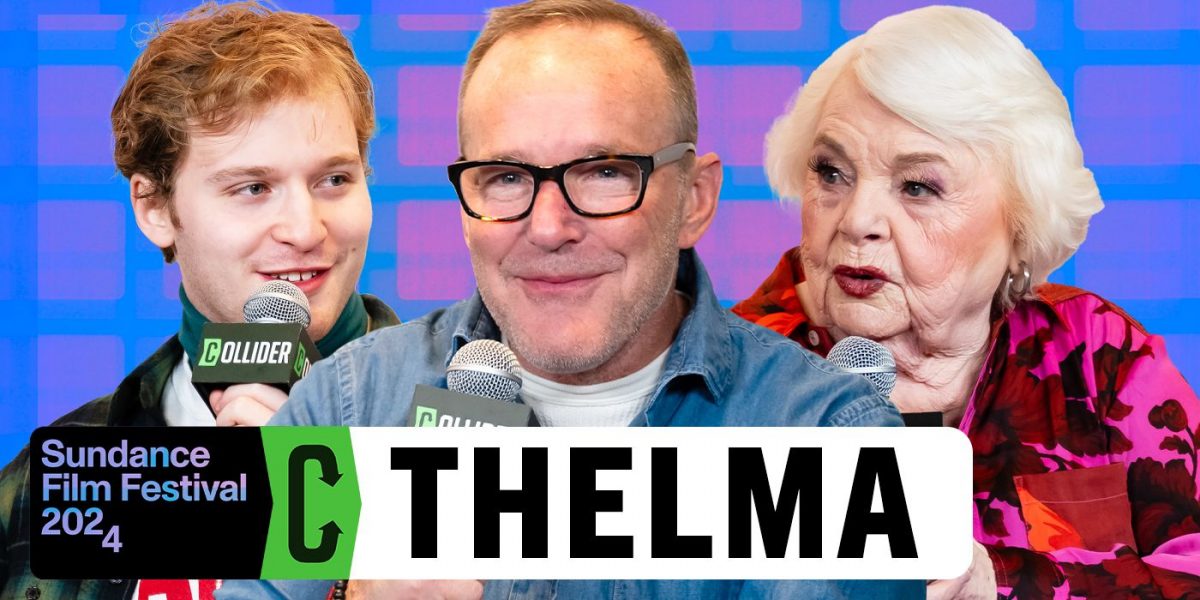
June Squibb Discusses ‘Thelma’ and Becoming an Action Star at 94
Jan 24, 2024
The Big Picture
June Squibb, nominated for an Oscar, stars in “Thelma” as a 93-year-old woman who embarks on a quest to reclaim stolen money. Squibb took on her most action-packed role yet, performing her own stunts in the film. “Thelma” tackles the issue of phone scams and highlights the vulnerability of older generations to digital fraud.
Throughout her career, Oscar-nominee, June Squibb has portrayed numerous characters in movies and television, including Nebraska, earning her an Academy Award nomination, Shameless, and lending her vocal talent to projects like Ralph Breaks the Internet and Toy Story 4. This year, Squibb got to attend the Sundance Film Festival as the leading lady for the first time in Josh Margolin’s action-comedy, Thelma.
Up until now, 93-year-old Thelma (Squibb) managed to avoid being placed in assisted living by her daughter Gail (Parker Posey) and her son-in-law, Alan (Clark Gregg). When a phone scammer says her grandson, Daniel (Fred Hechinger), has been hurt and needs money, Thelma is convinced to send $10,000. Fed up by her family’s belief she might need to be placed in a group home, Thelma takes matters into her own hands to reclaim what was stolen from her, and to prove she doesn’t need her independence taken from her, as well. In order to do so, Thelma teams up with her reluctant friend, Ben (Richard Roundtree), on a Mission: Impossible adventure across the city with her distressed family hot on her trails.
Stars Squibb, Hechinger, and Gregg stopped by our Media Studio, sponsored by Film.io, and sat down with Collider’s Steve Weintraub to talk about their collaboration on Margolin’s film, inspired by nearly-true events. Squibb shares early moments from her career, from theater to awards season for Nebraska, to her most action-packed role yet in Thelma. The trio talk stunts, Tom Cruise’s involvement with the film, and what it’s like to step on a set for the very first time. Hechinger also shares what it was like filming with Ridley Scott on Gladiator 2. Check it all out in the video above, or you can read the full transcript below.
Thelma (2024) When 93-year-old Thelma Post gets duped by a phone scammer pretending to be her grandson, she sets out on a treacherous quest across the city to reclaim what was taken from her. Release Date January 18, 2024 Director Josh Margolin Runtime 97 minutes Main Genre Comedy Writers Josh Margolin
COLLIDER: I have to start with you, June. You’ve been acting for seven decades, and I believe this is your first starring role. What does it mean to you to be the lead in this film and to have it be such a good movie? Everything about it.
JUNE SQUIBB: It’s funny because I never think of it like a leading role. I choose my roles from the script and what the role is, and I’ve had some wonderful supporting roles. So, it’s just a great role.
Image via Photagonist at the Collider Media Studio
I don’t know who wants to say it, but everyone watching this interview will not have seen the movie yet. Who wants to bite the bullet and say how they’ve been describing it to friends and family in terms of the plot?
CLARK GREGG: June plays Thelma and Fred plays her grandson, my son and Parker Posey’s son, and they’re very close. Danny (Hechinger) helps her with her tech issues sometimes as the world evolves very quickly for some of us in the older generations. Then she gets a call that Danny’s been in this terrible accident and he’s hit a pregnant lady and that he’s in jail and he’s gonna go into the system if she doesn’t get $10,000 cash to this lawyer very quickly. She can’t reach anybody. She can’t reach me, she can’t reach Parker, and so she sends off this cash that she’s gathered from all around her house. When we all gather, we realize it’s been a scam and there’s a fair amount of parental abuse to Danny for being asleep still at 10:30 in the morning, because that’s a whole subplot, a Failure to Launch thing. But when we start to have this conversation about, “Maybe she’s not really able to live alone anymore,” and, “She can’t take care of herself anymore,” for my money, it awakens a beast. It awakens an unlikely action star, and she decides to go get her money back.
June Squibb’s Stunts Rival Tom Cruise in ‘Thelma’
Image via Sundance
This really is your action movie. When you saw the script, there are a few scenes where I think you’re being asked to move a little bit.
SQUIBB: Yes, and I did it.
Exactly, so I wanted to know, were you nervous about doing your own stunts à la Tom Cruise?
SQUIBB: No, I loved it. I pushed it, you might say.
Really?
SQUIBB: I’ve always been physical. I danced for three years, and so I felt I could still use my body, and I did. Then driving the scooter, that was great fun. That was great fun.
One of the things about the film is you got to have some clips of Tom Cruise, and Tom Cruise is a plot point. I was like, “This is June’s Tom Cruise movie.”
SQUIBB: [Laughs] It is!
It’s your Mission: Impossible.
SQUIBB: They gave us the okay to use the clips, so they liked the idea too.
GREGG: Tom has been reaching out about being involved in the sequel.
Image via Photagonist at the Collider Media Studio
[Laughs] You can’t go wrong when you have Tom running in a movie, so this is just another film he’s running in, you know? You guys have some great scenes together, and I especially love the way you’re trying to explain in the beginning of the film how to use the computer. I’ve had that exact conversation with some of my older relatives. Can you talk about just getting to work together, those scenes, and how much fun you were having?
FRED HECHINGER: It was very natural. We met beforehand. I got to come over to your place and hang, and we started reading the script together. When a script is this great, every scene is pretty special. So I definitely had that feeling where we just enjoyed running through all of them. Then every time it’s the day to do it, it’s exciting and then you’re also like, “Oh, I really love that scene.” You just really enjoy it, so we had a really good time there and since.
I do want to say to the other question about the idea behind the movie, our director, Josh Margolin, writer, director, and editor, his real grandmother, Thelma Post, who’s 103 years old, is the basis for June’s character…His real grandmother was almost the victim of a phone scam similar to this, so he sort of imagined, “If she was, what would she do?” And in his experiences, and my experiences, and I think all of our experiences, a lot of the times the most heroic and powerful people do not get depicted on film very much. And I think it’s very true of Josh’s real grandmother, and it’s very true of June herself, that if someone messed with you in that way, you would be determined to figure out how to get your money back and how to right that wrong. And so, that was the other jumping-off point was, what does that actually look like? What does action, in all of its fragility, in all of its commitment, in all of its messiness actually look like on screen?
Image via Sundance
One of the other things I think that resonates with people as they’re watching is that what you’re depicting in this movie is happening to so many people – being scammed online, on the phone, text messaging. I’m not sure about you guys, but I get texts all the time.
SQUIBB: Oh, I get texts and emails all the time.
Yeah, with people just trying to scam you. I think that’s why it resonates so much.
GREGG: I mean, I’m a computer person. I’ve been doing this since the Macs first came out. I consider myself fairly savvy, and sometimes I have to reach out to a tech advisor or something, like, “Can this also be fake?” And it was a lot of times.
Basically, they’re always gonna try to one-up you, the scammers. When you guys were thinking about the shoot when you looked at the schedule, what was the day you had circled that you were either really excited to film something or very nervous to film something?
SQUIBB: Both. The cemetery scene with Fred. I love that scene, and I loved it when I read the script. It sort of said to me, “This is who this woman is,” what she said. And the fact that after all she’d been through she wanted to go to the cemetery and put some flowers on her husband’s grave. It’s funny because as an actor you think, “Oh boy, I can’t wait to get into that scene,” but you also think, “Oh, can I do it? Is it something that I understand enough to really do?” And that’s me with everything, though, so every scene is kind of that way. But that was a wonderful scene.
HECHINGER: I agree. I think sometimes a great script has what I would almost call a rudder’s scene. In times of doubt you can keep rereading that scene and come back to it, and I feel the exact same way where I would reread that scene when we were doing other scenes sometimes. It would speak to something that was churning underneath the whole part of it.
SQUIBB: It was such a smart scene. It was wonderful.
I’m a fan of all three of you and your work on screen. This is a hypothetical question, but say you have a big scene on a Monday, something that you know is emotional or dramatic, or you know you’re gonna have to pull something out of yourself for. How early on are you actually prepping for that scene? Are you doing it when you first get the script and sort of examining how you wanna play it or is it like especially the few days leading up to that day that you’re really in your head about it?
SQUIBB: I think I do it from the beginning with the script, when you first get the script. I learn over, over, over, and I get the script that way. Except for something like the cemetery scene, which was so precise and so “this is what he wants out of it,” I think most of the time it all comes that way. But it’s at the beginning. I don’t think you can wait until the night before and expect to understand it that well.
GREGG: I feel like it’s so dependent on the material. A lot of times there’ll be something in a script that just starts to live in you, and from the minute you read it, especially if it’s something you’re gonna do, I never stop, I wouldn’t say thinking about it, but I’d have dreams about it. I’ve even gone — I love Los Angeles [laughs] — to this brilliant woman who helps you work with dreams, and kind of ask in your dreams, “What’s getting to me about this?” And sometimes you get a dream that gives you some insight and connects you on a deeper level to it. Okay, I sound crazy.
HECHINGER: I’m with you.
GREGG: But for me, the other part of it is sometimes there’s a script where it’ll just say, “He’s emotional,” or, “He’s crying,” and you’re kind of like, “Why? From this scene? I must not understand this.” But then, what Josh wrote, it’s so gentle and so human and it’s not trying to make you love it. It’s not trying to get emotions out of you. It’s just telling a story in a very human way. In those, you’re kind of like, “I’m gonna not think about this too much and I’m gonna show up on the day, and I know that the scene has what I need in it.”
But again, I just think that what Josh wrote, one of the things that’s really lovely about Sundance that I don’t hear a lot is, we do a thing alone in a room or in a car, and everyone has to be quiet. You don’t feel it connecting with anybody but each other. Luckily, Josh did a thing where we had not even a couple of hours just reading through some scenes with our family, and it did so much to create a family dynamic. And Parker brings so much to that. Her amazing background with all the Chris Guest movies and the way that she can kind of make stuff just feel like it’s happening for the first time every time. And to come here and to not know, really, how an audience is gonna react to it. It didn’t feel, to me, immediately like a lot of Sundance movies are super dark and moody and edgy, and this has some of that, but it’s different. Just the humanity of it, to get to sit in an audience and feel people connecting to it or dealing with the life stuff that goes on here, has been really moving for me.
Image via Sundance
HECHINGER: You care about something for so long, you know? A group of people come together and you’re the only people in the world that care about that thing, that story. It’s a bizarre process because we’re in this world and we’re all bringing our dreams to it, our lives, talking about our experiences. That’s part of what you were asking about that preparation. We’re all together sharing that, and you just keep pushing and pushing it up the hill as much as you can. If you’re lucky, it’s finished. And two nights ago was the first time that you can, a little bit, if you’re lucky again, watch other people start to care about this thing that you never thought this far ahead, that other people would. So, it’s an amazing feeling.
You guys have great resumes, and I’m curious, if someone has never seen anything you’ve done before outside of Thelma, because you can easily say Thelma and it’s fantastic, what would you recommend they watch first and why?
SQUIBB: Nebraska. That was, again, a joy to make, and the people involved. It was just a wonderful experience. Then we went through the whole awards season together, so we had about three years together in a whole.
Fantastic film. If you’ve never seen Nebraska it’s a strong recommendation.
HECHINGER: I’m gonna answer this in a second, but I love all of June’s movies I’ve seen. I wish I had a time machine because I also wish I could have — when we were going through all the pictures — I wish I could have seen the old plays and the musicals, too. Those are the things I’m always kicking myself about, when it’s something that doesn’t exist on film. You’re like, “Oh my gosh! If only it was there.” Let me see, I did a short film called David that I’m deeply proud of.
GREGG: Because I’m at Sundance, the first thing I came here with was a movie called The Adventures of Sebastian Cole, and I played an ex-marine who was very clumsily trying to transition in late ‘90s upstate New York. It was a first feature by this wonderful guy, [Tod Williams], and I don’t know, except for how badly I walked in the heels, I’m proud of that movie.
Clark Gregg Was Nervous Joining ‘The Avengers’
Image via ABC
What is the most nervous you’ve been the night before the first day of filming something?
SQUIBB: My first film. [Laughs] It scared me to death. I’d worked so much on stage but I’d never done film, and I was doing Woody Allen’s Alice. He was wonderful to me, and it was a great experience, but boy was I scared before I ever walked onto that set.
GREGG: And I mean, this woman has a resume on Broadway that’s titanic. But you step into a different medium and it’s terrifying because it’s completely different.
SQUIBB: It was like being a child.
Is it one of those things where the night before you’re just not sleeping? Are you that much in your head?
SQUIBB: Yeah, I mean, you’re thinking about it so much and it’s so important to you. I had no idea what to do. I could still remember that all of the crew were trying to keep me away from the cables. I didn’t know about cables back then. Getting to the set, I felt like if they could have, they would have carried me in just to get me away from all the cables.
HECHINGER: I found the lingo so confusing because there’s that turn of phrase that they say on set while they’re setting up and rehearsing a scene, and they say, “We’ll figure this part of the camera out on the day,” they say. “On the day.” And I remember doing a scene and being like, “I thought they were doing the scene today.”
GREGG: “What day?”
SQUIBB: “Is this next week’s scene?” If not, what are we doing right now? It’s terrifying.
GREGG: I feel like it happens every time. I felt all those same ways. Like, I don’t understand where the camera is or what I should be doing. And I think in all the stuff I did first, you see me looking to see where the little mark on the floor is a lot. But even after I had done some stuff, the day I was showing up for the first scene in The Avengers and it was gonna be this group of actors that I was in awe of, I was like, “I’m afraid I’m gonna open my mouth and nothing’s gonna come out.”
Image via Photagonist at the Collider Media Studio
Film.io is all about putting the power to green light films in the hands of creators. To lean into that a little bit, can you each name someone who empowered you on a past project, someone who believed in you and put the creative power in you when you didn’t really didn’t expect to get it?
GREGG: Good question. Frosty lives.
HECHINGER: Hundreds of names are rattling through my mind because I’m realizing that my love of independent film and my experience with being an actor is just literally, I’m not even being hyperbolic, literally hundreds and hundreds of people who are so willing and open to field and every question and go beyond. That’s not just directors, that’s the entirety of the crew. I’m always quite amazed by how gracious every crew is in terms of illuminating exactly how they do something. If you go up and you say, “Wait a second, why is that this, this and this?” They tell you exactly. I’m thinking of a great sound designer that I worked with, John Pritchett…
GREGG: I love John Pritchett.
HECHINGER: He’s an amazing, amazing person who did so many of my favorite films. I was doing a Western in New Mexico and he would let me sit in the sound truck with him and all of his guys and would basically teach me just beat by beat how he’s recording five pieces of audio right now. Because the way that they set it up is he wanted this kind of documentary filmmaking, so you’re recording all these tracks at the same time, and exactly how is he doing that? How is he keeping that there? Anyway, I just remember feeling like, “This is a masterclass from one of our great sound designers.”
GREGG: He’s done more amazing movies, and this guy — there’s none of them I could even say — has the best stories of anybody in the business. The stuff he’s heard over the little microphones that are on your body all day, oh dear lord. And he’ll tell you.
So much of the time, and this may sound naive, you kind of feel like you’re just — we saw the Sasquatch [Sunset] movie last night — you’re a little Sasquatch trying to get through the woods on your own. When somebody says, “Oh no, I really love what you’re doing. I want you to come into this,” it just gives you another 10 years of life. I think it’s so empowering. I had an acting class at NYU, and the two teachers were a young playwright named David Mamet and his main guy who’d just come from Chicago with him, William H. Macy. We studied together for a couple of years, we formed a theater company, and then Mamet offered me my first bit role in a movie, which I was like, “Oh, he’s backing it up.” And then Macy directed a play in New York, a one-act on 42nd Street, and he gave me a nice part in that, and I went, “Wow, that’s real.”
SQUIBB: I have to say, my husband, Charles Kakatsakis, was an acting teacher, and we met acting in stock. I was brought in to do the musicals and we lived together, and he always said to me, “You’re fine in musicals. You’re great in musicals, but you really should be acting.” So, he literally changed my life. He made me do it. He made me learn how to work. So, this was the biggest thing that ever happened in my life because I wouldn’t be doing what I’m doing now if it weren’t for him.
Image via Photagonist at the Collider Media Studio
Fred, I definitely have to ask you an individual question because I’m a big fan of Kyle Mooney, and I believe you’re in Y2K, which is his next film.
HECHINGER: I don’t want to break any news, but I’m not. I was going to do a very funny cameo thing in that, but then…
GREGG: He got in two or three other huge movies.
HECHINGER: No [laughs], but anyways, it’s gonna be great.
Fred Hechinger on Working With Ridley Scott in ‘Gladiator 2’
Image via Photagonist at the Collider Media Studio
I’ll switch to something else. I know you can’t talk about Gladiator 2, anything specific, but you got to work with Ridley Scott, and the thing that I find fascinating about Ridley is he works in such a different manner than other filmmakers because he shoots with six or eight cameras all the time. As an actor, what is it like working when you’re shooting with six or eight cameras, and can you sort of talk about making Gladiator with Ridley working in such a different environment?
HECHINGER: It’s amazing. I mean, the eight cameras reminds me of theater because you have an entire environment that’s created in camera. But I have to say, what’s amazing, too, is when something feels alive it feels alive in unique but connective ways. So, when something’s really special, what we’re doing here, when you start to find a rhythm, again, if I’m lucky, I feel connected to that feeling of when I started doing plays. I’ve never been able to put a name to whatever that weird feeling is, but you just get a sense of it.
GREGG: Like, “I hope they’re getting this.”
HECHINGER: Yeah, yeah! “I hope they’re rolling.” [Laughs] There’s something that you can’t put your finger on that’s within the moment of the moment in the moment. We spend all this time hanging out, and first off, you make real friends, which is an amazing part. And then you also, within the scenes, you find something that you cannot name. And all the intensity of that set breeds that, and all the kind of gentleness of this one breeds that. I always find that the process becomes the product, and so, however it’s designed is built to bring out and nurture and kind of speak to that story that it’s trying to tell.
Special thanks to our 2024 partners at Sundance including presenting partner Film.io and supporting partners Pressed Juicery and DragonFly Coffee Roasters. Thelma had its World Premiere at the 2024 Sundance Film Festival.
Publisher: Source link
I Was Locked Into This True Crime Mockumentary’s Serial Killer Terror Despite One Fatal Flaw
True crime documentaries have become a huge staple of modern entertainment culture. From movies to miniseries, the documentation of grisly murders and corrupt cover-ups has become a permanent subgenre of documentary filmmaking. Because of how widespread it is, it also…
Aug 13, 2025
Jenna Ortega Can’t Save A Meandering, Directionless Season 2
Despite its clumsy attempts to recapture the magic of the ‘90s films “The Addams Family” and “The Addams Family Values,” season one of “Wednesday” found its charm through the stone-faced performance of Jenna Ortega as the titular Wednesday Addams. made…
Aug 12, 2025
Dexter’s Pursuit of the Gemini Killer Leads to the Series’ Most WTF Twist
Editor's note: The below recap contains spoilers for Dexter: Resurrection Episode 6. If you thought after three TV series that the world of Dexter Morgan (Michael C. Hall) had run out of things to do, oh, has Dexter: Resurrection been…
Aug 12, 2025
Zach Cregger’s ‘Barbarian’ Follow-Up Is Frightening, Hilarious, and One of 2025’s Best Horror Films
In recent years, it seems like we’ve seen an uptick in people known for comedy dipping their toes into horror. Most famously, Jordan Peele won an Oscar for his debut feature as writer-director, Get Out, but Kevin Smith and Bobcat…
Aug 12, 2025
